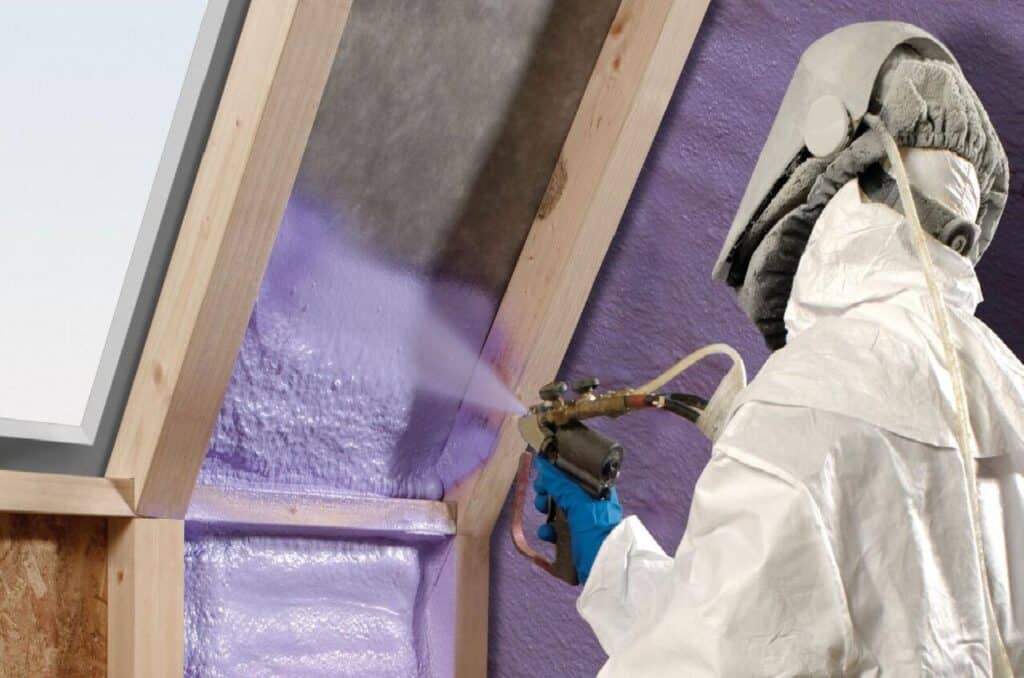Polyurethane is a “commodity plastic” that is, it’s produced in huge quantities (about 25 million metric tons annually) and used for an extraordinary variety of applications. That means all of us have polyurethane within our vicinity each and every day but does this mean that we are exposing ourselves to a fire hazard and should we be taking precautions in the presence of polyurethane?
Pure polyurethanes are flammable and can ignite easily. However, it is common to add fire retardant chemicals to polyurethane that reduce its flammability to some extent. The flammability of polyurethane will depend on what it is mixed with.
That means we should take sensible precautions around polyurethane products and not expose them to excessive heat, naked flames, or electrical sparks. But let’s take a closer look and see why.
Your # 1 priority is keeping your family safe. As a firefighter, I recommend everyone has updated smoke detectors that don’t require battery changes, like these ones from Kidde, a fire extinguisher, like this one from Amerex, and a fire escape ladder if you have bedrooms above the first floor, I recommend this one from Hausse.
Also read: What Makes Something Flammable?
What Is Polyurethane?

Polyurethane is a “polymer” that is a plastic that contains multiple units of carbamate (that’s urethane in the previous chemical naming system).
It’s easy to produce and can be made from a variety of monomers (individual urethane units) and as such there is no single plastic called “polyurethane”, instead it refers to a class of plastics.
This means that polyurethane can have very different physical properties, depending on the monomer used to create it, and it can be rigid or flexible, used for coatings or for glues, and even drawn out into fibers for clothing such as Spandex.
About two-thirds of all polyurethanes are foam products that are used in a huge range of industrial applications.
Polyurethanes account for approximately 6% of all the plastics produced in any given year.
Is Polyurethane Flammable?
This is a complex question because while most pure polyurethanes are flammable, some are not, and you can add flame-retardant chemicals to polyurethane to change this property.
However, it is fair to say that if you are dealing with liquid polyurethane, you should assume that it is flammable unless you have documentation confirming that it is not.
Is It Flammable After It Dries?
Again, to a large extent, this depends on the particular form of polyurethane used. For example, the polyurethanes used for boat decking are not flammable when they are set, whereas Miniwax coating (which is also made of polyurethane) very much is.
Again, it is better to be safe than sorry and assume that polyurethane products are flammable unless you have the data to hand to show otherwise.
Is It Ever Fire Resistant?
It can be. Polyurethane is used in firestops, after all, but it does require a particular kind of polyurethane or treated polyurethane.
The fire at the Brown’s Ferry Nuclear Plant was caused, in part, because the firestop was made out of flammable polyurethane! A mistake had been made in choosing the sealant and nobody had noticed until it was burning.
Can It Spontaneously Combust?
If it is in liquid form and left to dry out on rags, polyurethane has been known to spontaneously combust.
As the rag dries it produces a level of heat that is enough to light the highly flammable polyurethane.
Thus, you must be very careful when disposing of oily rags and never dump them in the trash when wet.
Instead, hang them up, outside, to dry and only dispose of them when they are dry. If you use a lot of rags like this, you should have a specific container that is emptied by a private contractor for safety.
Is Polyurethane Cladding Flammable?
All polyurethane cladding made and installed prior to 2003 should be treated as though it is combustible (not flammable) and as such, it can only resist flames for about 5 minutes before it catches fire!
More recent polyurethane cladding has been treated and passes building code inspections to be truly fire-resistant.
What Is Polyurethane Used For?
Because of the huge range of potential products that are considered to be “polyurethanes”, there is an incredible number of applications for polyurethane products, and it is used in:
- Cleaning products – particularly for sponges
- Furniture – the foam is very useful in furnishing and flexible polyurethane can be fully recycled
- Automobile industry – polyurethanes allow for extremely efficient manufacture of car seats and other automotive parts including wheels
- Housing – you can make whole houses out of polyurethane (see Xanadu Houses in Florida) but more typically it’s used for insulation purposes and for aesthetic finishing
- Firestops – this is less common than it once was, as firestops can also prevent hose-streams and occasionally, have been made out of flammable polyurethane
- Water vessels– you can make inflatable boats, rigid hull boats, surfboards, and boat decks as well as water tanks out of polyurethane
- Varnishes, adhesives, watch straps and much more!
Is Polyurethane Environmentally Friendly?
“Environmentally friendly” is a very big topic, but it’s fair to say that as plastics go, polyurethane is more eco-friendly than most.
It also doesn’t have any chemicals that disrupt your hormonal or endocrine systems and it is pH neutral and won’t adversely affect water or the soil.
Is It Toxic?
Assuming it’s dry, polyurethane is, generally, chemically inert and that means it’s non-toxic.
So, if your child eats a bit of a polyurethane foam cushion, for example, they’re not going to suffer any ill effects, at least, not that we know of.
Is Smelling It Dangerous?
When polyurethane is wet (or uncured) then it’s best to avoid inhaling it.
These fumes can irritate and damage the respiratory system.
Can The Fumes Kill You?
If you breathe enough polyurethane fumes, eventually, they will kill you but this would require very large exposure.
Breathing a little polyurethane while working on a DIY project is unlikely to do any long-term damage.
Is Polyurethane Water Resistant?
Yes, but it’s important to note that it’s water-resistant, not waterproof. So, don’t flood your polyurethan products and expect them to come out perfectly at the end.
Does Polyurethane Emit Carbon Monoxide?
Yes. Polyurethane as it degrades can give off carbon monoxide and hydrogen cyanide! The good news is that in normal circumstances it degrades so slowly that it won’t produce enough of these toxins to harm you.
However, if polyurethane burns – it will emit both in large quantities and you should take precautions that you do not breathe in polyurethane smoke.

